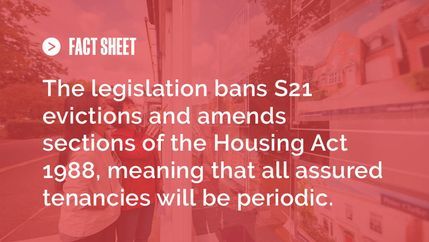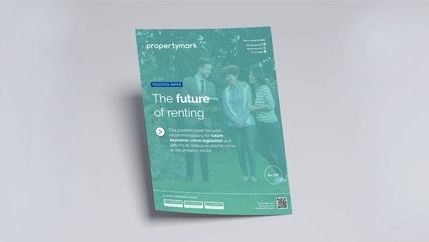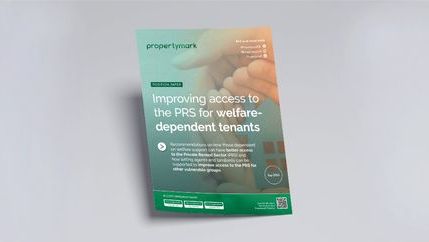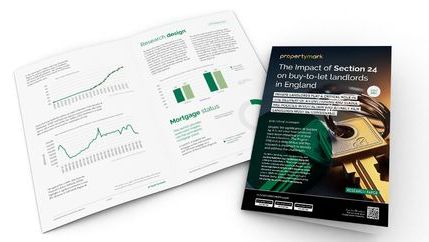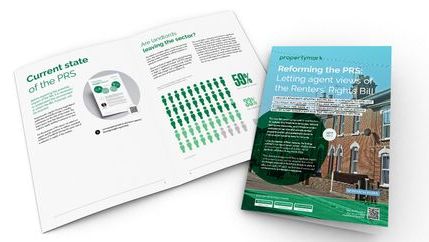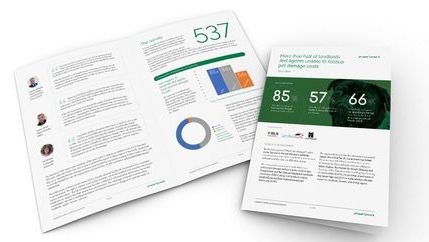When does the Renters' Rights Act take effect?
Implementation will be a three-stage rollout. Phase One – taking effect on 1 May 2026 – focuses solely on tenancy reform: the transition to periodic tenancies, limits on rent in advance, a ban on rental bidding, clearer rules on rent increases via Section 13 notices, strengthened anti-discrimination measures, and new rights around pets.
Phase two will begin in late 2026 and includes the Landlord Ombudsman and new PRS Database. The Decent Homes Standard and Awaab’s Law will form Phase three, currently expected no earlier than 2035.
Additionally, new investigatory powers for local housing authorities can be used from 27 December 2025. These powers allow authorities to request information, seize documents, and enter business premises under certain circumstances when they are investigating whether a private landlord or letting agent has broken certain laws.
View the list of Renters' Rights Act 2025 guidance →
Supporting property agents to adapt
We have created resources to help professionals with the transition as the enactment details become final. Propertymark Members— check your communication preferences to ensure you are receiving newsletters and legislative updates to stay informed every step of the way.
Toolkit
Renters' Rights Act 2025 Toolkit
The toolkit breaks down the Act and helps you to inform your landlords and tenants. It includes guidance, training, fact sheets, FAQs, and resources to help you prepare for the changes.
Training course
Renters' Rights Act: What you need to know
Stay ahead of the curve with this essential course on the Renters' Rights Act 2025. Get up to speed on the legislation and learn how it impacts both tenants and landlords.
Renters' rights roadshows
Renters' Rights Act roadshows and regional meetings
Our Roadshows and Regional Meetings are unmissable and regular attendance is essential for members who can book for free. Our interactive meetings are designed to ensure that you are on top of the latest best practice and legal obligations.
Video playlist
We've created easy-to-share, bite-sized video explainers for the key elements of the legislation, including periodic tenancies, rent increases, PRS database, Ombudsman, redress, and the Decent Homes Standard. Fantastic to support your communication with landlords and tenants about how the sector will be impacted.
Resources
Propertymark's campaign work
Throughout the development of the legislation, we have worked closely with members, property sector stakeholders, parliamentarians, and officials to ensure the voices of property agents were strongly represented. We have continually called for clear, detailed guidance and realistic implementation timelines to support letting agents and landlords through the transition. We will continue to advocate for a fair and flexible private rented sector that works for all.
Ensuring the court system is properly resourced and that possession grounds are workable remains critical to the success of the reforms. Robust and consistent enforcement by local authorities is also essential. Without it, the intended benefits of the changes risk being lost.
Our position papers provide a detailed examination of the key issues impacting property agents, presenting our recommendations to policymakers and stakeholders through thorough research, industry insights, and expert analysis.
The Future of Renting
The Future of Renting features our recommendations to the UK Government and its plans to reform the private rented sector in England. We want to help shape and influence the UK Government’s Renters’ Reforms White Paper which is due to be released in 2022.
Improving access to the PRS for welfare-dependent tenants
Includes recommendations on how those dependent on welfare support can have better access to the Private Rented Sector (PRS), and how letting agents and landlords can be supported to improve access to the PRS for other vulnerable groups.
The Impact of Section 24 on buy-to-let landlords in England
In the summer budget of 2015, Chancellor George Osbourne, announced his intention to limit the ability of landlords to claim tax relief on finance costs including mortgage fees and mortgage interest payments. Despite the significance of Section 24, it is not clear how landlords have been impacted or of their future intentions. The English PRS is in a state of flux and this research is important to identify and address the challenges.
Reforming the PRS: landlord views of the Renters' Rights Bill
Labour's reworked Renters' Rights Bill is intended to replace the Renters (Reform) Bill, and whilst it, essentially remains the same, its implications may be more significant for landlords and the private rented sector (PRS). Insights into the Bill from the landlord's perspective, obtained from Propertymark letting agent members' landlords in March 2024 are still prevalent. Established worries remain unaddressed, and more concrete guidance is necessary.
Reforming the PRS: letting agent views of the Renters' Rights Bill
The Renters' Rights Bill has been reworked following Labour taking power in July 2024, which is intended to replace the Renters (Reform) Bill, and whilst it essentially remains the same, its implications may be more significant for the private rented sector (PRS). Research conducted with a geographically representative sample of Propertymark letting agent members provide valuable evidence that policymakers can use to help shape the Bill and inform its implementation. Established worries remain unaddressed, and more concrete guidance is necessary.
Renting with pets survey reveals extent of damage costs to landlords
An online survey showed that pet damage is extremely common in properties where landlords rent to tenants with pets and the costs are difficult to recoup. With the demand for pet-friendly homes continuing to increase, the UK Government must now understand the costs for landlords and implement rules that support the sector.





